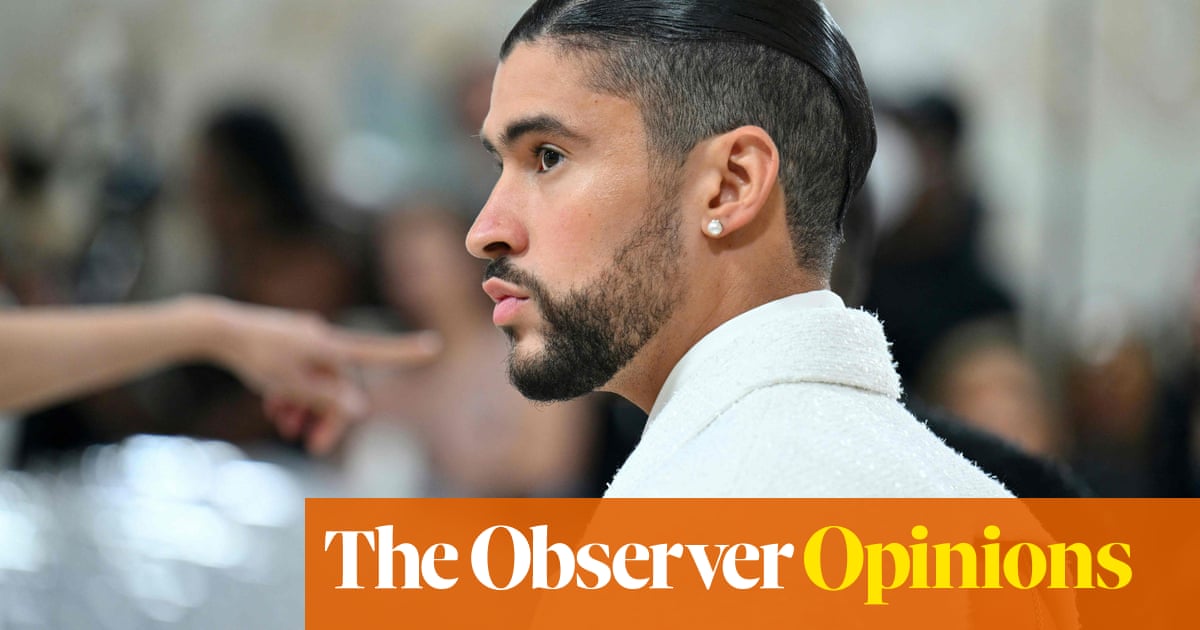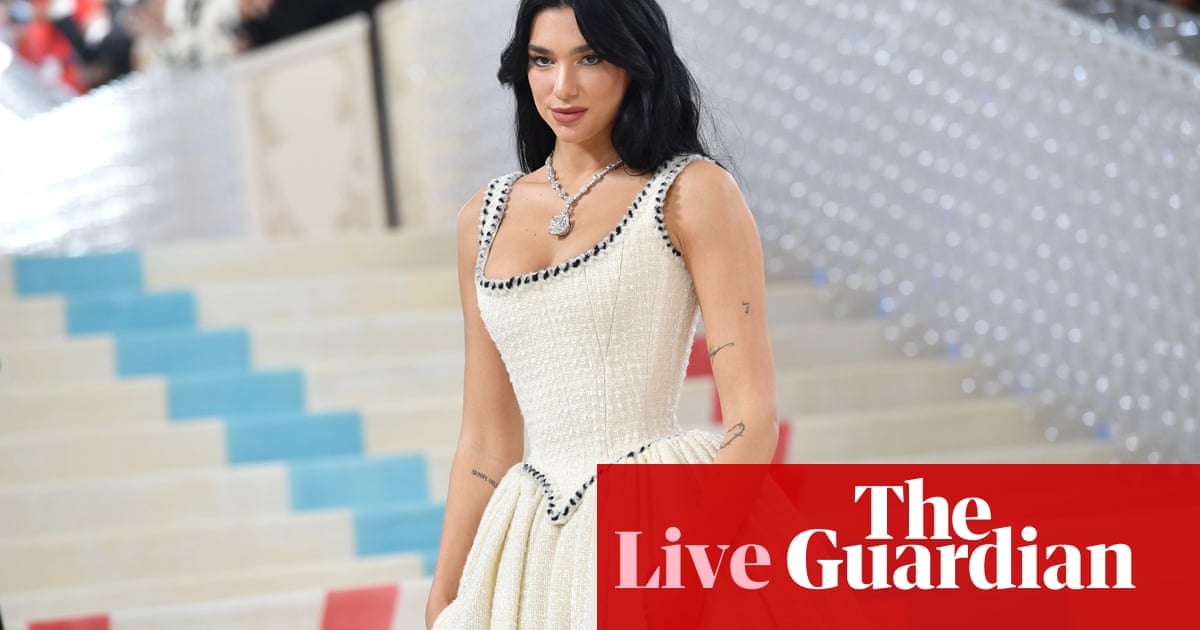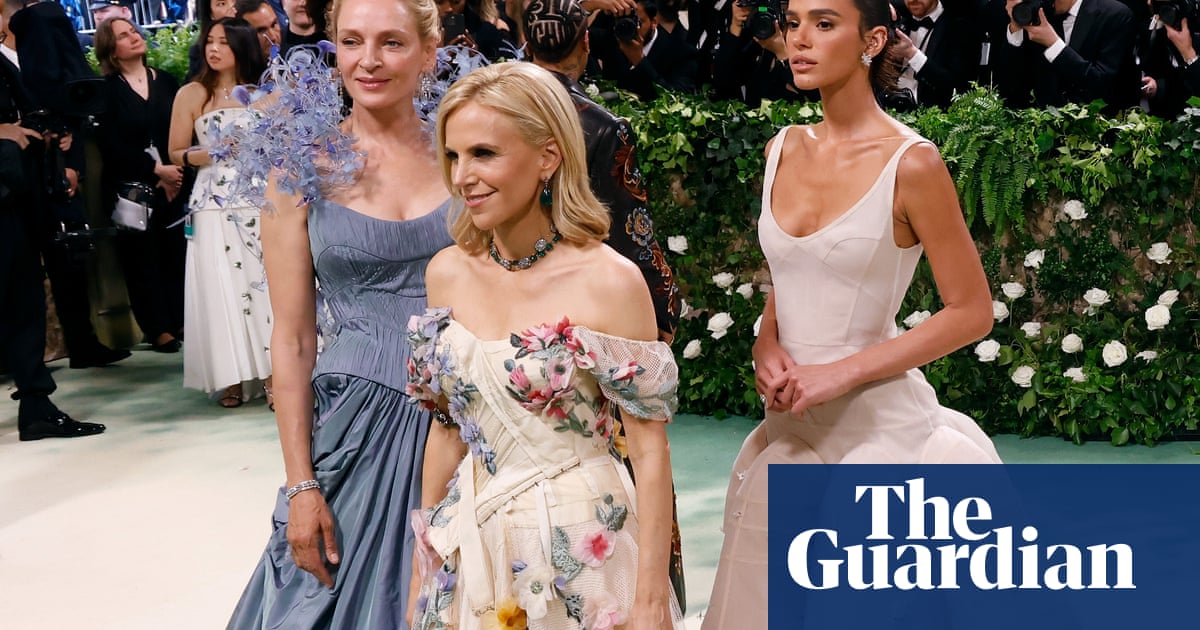
The Met gala has come and gone in a brief cacophony of internet clicks. Like many people, I balance ignorance of its purpose (it’s an annual fundraiser for the Met museum’s Costume Institute) with needing to know what everyone wore. The men triumphed this year, what with Taika Waititi’s unstructured bluish-grey housecoat, Bad Bunny’s seductive white backless blazer, Barry Keoghan in retina-sizzling electric blue plaid and Pedro Pascal’s bare knees, cheeky scout grin and scarlet overcoat.
Every Met gala has a theme, and this one honoured the late Chanel designer Karl Lagerfeld. Lagerfeld’s designs were peppy and sellable. But the monochrome palette, the bouclé wool, the pearls, the silk jersey, the uncorseted black dress, the neat little shoulders and narrow silhouette, the androgyny and uniform aesthetics, the quilting and tweed, the chains and braids, the camellias, the handbag, the logo and – above all – Chanel No 5 perfume, whose sales keep the business running? Those were invented by one woman, the genius Coco Chanel.
Aside from his caricaturable personal appearance, Lagerfeld had no style signature. He used high fashion to elevate himself. He also knew how to punch down. Look up his comments about fat women, Middle Eastern refugees and the Holocaust and then ask yourself if a jewelled enamel brooch ripped from Coco’s sketchbooks is so desirable.
Lagerfeld was diligent, fashion-literate and capable of succeeding in big fashion houses and big business. He didn’t waste the opportunities he received – headline roles that equally gifted talents, particularly women of colour, can only dream of. In celebrating him, the Met does not celebrate an original artist or a good man, it merely celebrates success.
Total TV royalty
So now Charles is crowned, ending the world’s longest workplace apprenticeship. Over the last few years I’ve enjoyed a sideline as a TV royal commentator, trying to explain their nifty blend of telenovela melodrama, imperial privilege and divine medieval mystique. Last week, and at the Queen’s funeral last year, British broadcasters lurked outside Buckingham Palace, murmuring about heritage and history in our sardonic way.
Our American journalist peers were in another league altogether. Exuding punch and pizzazz, they had the presence of Hollywood actors playing TV correspondents. The levels of good hair were unbelievable. I like the can-do American spirit, the lack of snide negativity and the appreciation for ambition. I dream about having a beige corporate apartment in Manhattan, walking to work holding a coffee and signing off, on-camera: “This is Bidisha Mamata, for CNN/NBC/ABC/CBS.”
But my royal TV gigs showed me where I am in the pecking order. When you observe Christiane Amanpour and Anderson Cooper working their magic you look at yourself with your phone camera and conclude that, for all your competence, perhaps you just don’t exude screen-burning cinematic power-charisma and that wanting something a lot doesn’t make it happen.
Going off-script
Cinema has died, the small-screen streamers won and the pandemic turned us all into tracksuited recipients of infinite digital “content”. Despite soaring profits for the studios, US film and TV writers are striking because they can’t securely earn enough to craft a body of work.
What a horrible time to live through, as culture, careers and creativity dissolve into “online” and capitalism eats itself. I think in future the TV tech lords will just invest money in fine-tuning AI to absorb all the films, audio and TV shows that are online and spit out full length computer-generated scripts that are not actually worse than Maid in Manhattan.
Bidisha Mamata is an Observer columnist












